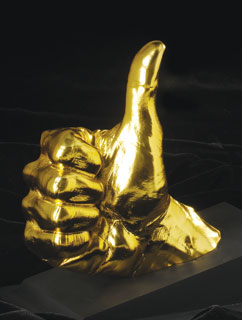I won’t be able to post pictures until I get home, but here is a quick update on Roger Ebert’s festival at the University of Illinois. Unlike many festivals, which have a dozen or more choices of events every minute of the day, this one has just one panel or film at a time, which creates a marvelous shared experience and sense of community. The screenings take place in the magnificent Virginia Theatre, an historic space that has served as a vaudeville house and as an enormous cathedral of film. Thursday night, we saw “Trouble the Water,” a stunning, infuriating, heart-breaking, and uplifting documentary about Hurricane Katrina and New Orleans. The film-makers were there to talk about it afterward, including the young couple whose home movies and journey are at the heart of the story.
Yesterday, I attended a panel discussion that included writer-director Ramin Bahrani of “Chop Shop” and the upcoming “Goodbye Solo,” Misty Upham of “Frozen River,” Carl Molider, producer of “Let the Right One In,” and Andy Ihnatko of the marvelous blog Celestial Waste of Bandwidth. Upham, a Native American, spoke of being told in auditions to come back when they do a western. “I can play a regular person! I can play a taxi driver. I will do anything that does not involve a teepee or buckskin!” The debate on whether we should “let” people see pure popcorn films like “Wolverine” was very spirited and I especially enjoyed a teacher from Downer’s Grove in the audience who said that she loved it when the kids in her film class tell her she has spoiled movie-going for them because they can’t “just watch” anymore.
Then I was on a panel of critics — 10 critics, 90 minutes, you can do the math. But at least from where I was sitting at the end of the long, long table, it was surprisingly substantial and a lot of fun. We represented print, radio, television, and the internet. Many of us have done them all. We have appeared in every possible form of media except perhaps cuneiform tablets and notes in bottles. We had the obligatory mourner’s wait over the state of newspapers and how hard it is to make money as a movie critic. But I really enjoyed the variety of voices and the unquenchable passion for movies and for thinking about them, writing about them, and especially helping the good ones find their audience. I especially liked the comments from Time Out Chicago’s Hank Sartin and it was a great pleasure to meet for the first time my email friend Eric Childress, of the withering CriticWatch, which takes on the “critics” who will call anything “the feel-good film of the year” to get their names in the ads.
After a couple of hours at the University’s Center for Professional Responsibility in Business and Society, where I serve as an adviser, I returned to the Virginia Theatre to see “The Last Command,” a 1928 silent film directed by Josef von Sternberg. Emil Jannings plays a Russian general, a cousin to the czar, now reduced to trying to find work as a Hollywood extra for a few dollars a day. A very young William Powell plays the director who hires him to play…a Russian general. It was a thrill to watch it on the big screen, with the live accompaniment from the Alloy Orchestra, which specializes in music for silent films. The film is an artifact in its tone and context — it was re-enacting events of the Russian revolution only a decade later — but it is utterly immediate in its themes and Powell, especially, gives a performance of timeless grace and humanity.
I also had the quintessential festival experience of sharing an elevator ride with one of my filmmaker heroes, Guy Maddin. Bliss.


